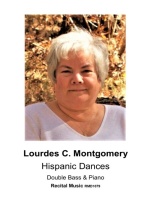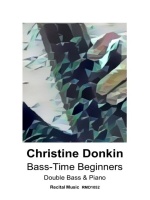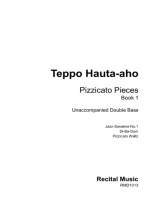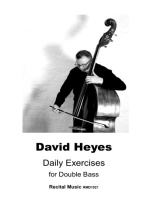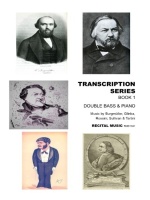Your basket is currently empty!
Concerto in A minor
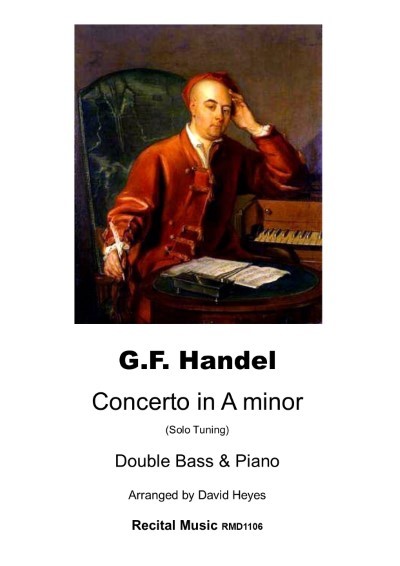
Description
The solo double bass, Repertoire consists of a wealth of original music but also a great reliance on transcriptions. Composers and performers have transcribed music …for the double bass for centuries and the tradition is a long and varied one with many pieces which are now standard recital fare. Works such as the Eccles Sonata, Bloch Prayer, Kol Nidrei, Arpeggione Sonata and so many more make a great addition to our, Repertoire which really broadens and expands the styles and idioms available to the student, amateur and professional bassist alike.
František Simandl (1840-1912), also known as Franz in German publications, was an inveterate transcriber, alongside composing original works for the instrument and persuading friends and colleagues to do the same, and one very successful transcription is G.F. Handel’s Concerto in A minor. Originally a tone lower and for oboe and string orchestra with continuo, Handel’s concerto lends itself well to the double bass, albeit a few octaves lower than the original, and Simandl created a really great edition that offers much to the progressing bassist.
It was included in the nine volume Hoch Schule des Kontrabass-Spielen, probably published at the end of the 19th-century and the bass part remains in G minor and the piano accompaniment in A minor to account for solo tuning. Composed in about 1703 when Handel was in Hamburg, it is generally known as Oboe Concerto No.3 today, although in reality it was probably the first of the three concertos to be written but was first published in Leipzig in 1863, well over 150 years after it was composed.
Blair Johnston writes that “…the G minor Oboe Concerto delivers some of the more thoroughly engaging solo music to appear anywhere in Europe during the first years of the new century; Handel’s genius for rich, sonorous beauty and lean musical structures is in full bloom even at the age of eighteen or nineteen…”
In four contrasting movements and lasting around ten minutes, it follows the typical Baroque style of slow-fast-slow-fast, and would make a nice concert opener for bassists as a contrast to the Eccles Sonata. Each movement includes a few technical challenges, although nothing insurmountable, and offers great possibilities to the adventurous bassist to display both musical and technical prowess in equal measure.
Simandl remains quite close to the original, although he does remove a couple of bars in the first movement and links the end of one solo phrase with the start of another, removing a brief instrumental link. He also adds a little to the solo part in the second movement, giving the bassist more of the melodic interest, alongside a great three bar passage of technical arpeggio writing towards the end of the fourth movement, which is more bass technique than Handel invention, but it works and does create a great bravura ending for the soloist.
The key of G minor is a useful one for two and three-part chords and Simandl ends the two fast movements with strong and confident chords which the double bass can play so well, and easily. The first movement (Grave) is bold and dramatic with repetitive dotted rhythms to add momentum and drive, contrasting the following movement (Allegro) which is lively and buoyant, with passages of running semiquavers (sixteenth notes) in different registers allowing the bassist to demonstrate a good technical command of the instrument. A stately Sarabande (Largo) offers a moment of calm before the final movement (Allegro) which is rhythmic and exciting, bringing this concerto to a positive and successful conclusion.
Handel’s Concerto has been published in several editions for double bass, although a Polish one which changes the title to Sonata which is a little baffling, and I created a new edition for Recital Music and produced versions for both solo and orchestral tuning. It has also been arranged for viola, cello or trombone and a version for double bass joins this selective group of transcriptions. This is a really great transcription for double bass if you forget about the height and piercing sound of the oboe and although it was a favourite teaching piece of Frantisek Posta and recorded on LP by Klaus Stoll, the piece is still relatively unknown. It deserves a place in the standard solo, Repertoire, particularly as it offers much to performers and audience alike, makes a change from the usual Baroque, Repertoire and, at around ten minutes, doesn’t outstay its welcome.
[David Heyes / 21 June 2017]
R.R.P £7
Our Price £5.95
